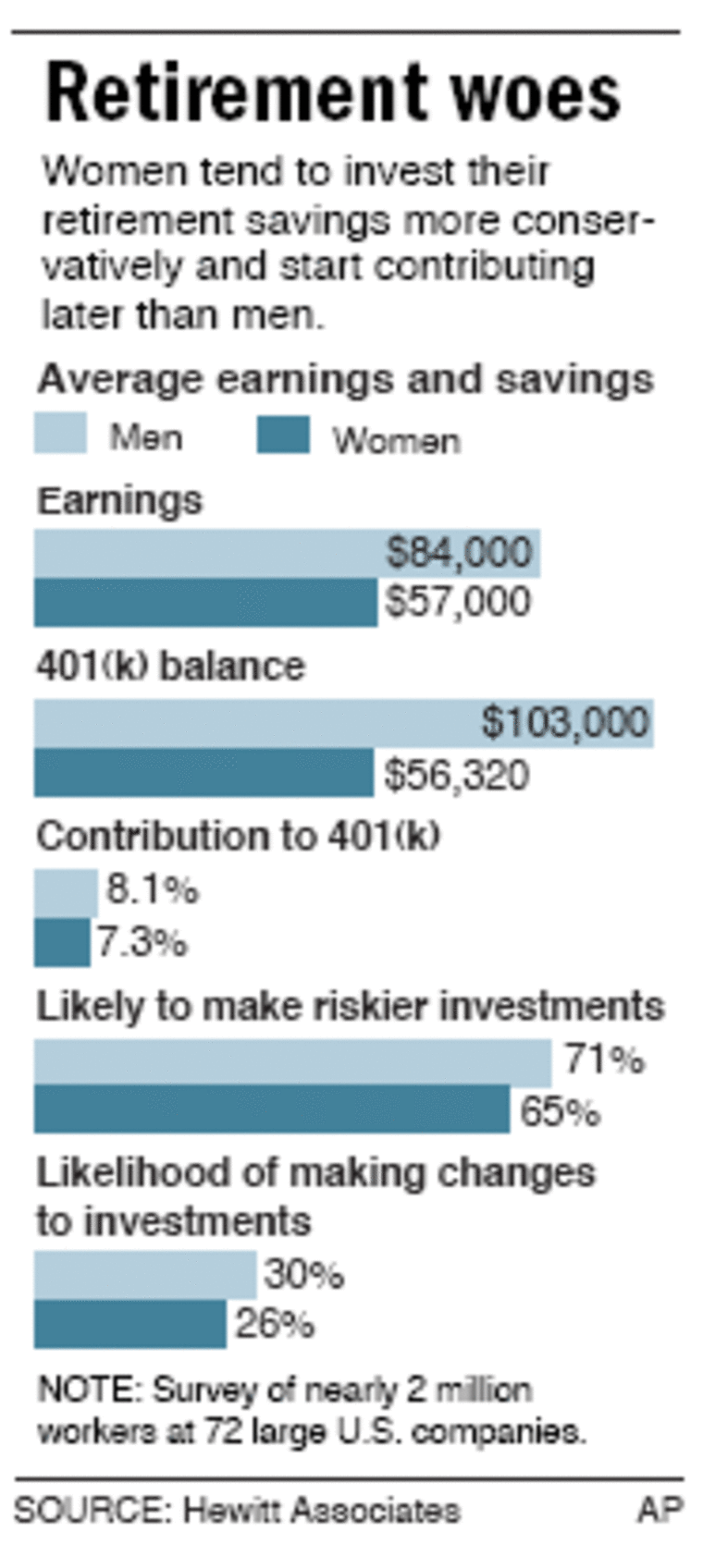Women may not earn as much as men or fly up the corporate ladder as quickly, but they get the last laugh since they live longer. Right?
As it turns out, women probably aren’t saving enough to bankroll those extra years in style. They invest more conservatively, start saving later and are more likely to be in and out of the work force, according to a study released Wednesday by Hewitt Associates, a human resources consulting firm.
Suddenly, retirement isn’t looking so rosy.
Women live an average of 22 years after retirement versus 19 years for men and medical costs are rising, so women will need to save 2 percent more than men every year over 30 years to maintain their standard of living upon retirement, the study found.
The importance of saving didn’t dawn on Jerre Laughlin until she was in her 40s and started working in human resources.

“I was looking at pensions all day and was seeing what happens to employees who don’t save. That’s when reality set in,” said Laughlin, now 63 and a resident of Kansas City, Kan. She’s been playing catch-up since and doesn’t plan to retire until she’s 67.
Laughlin isn’t the only one who’s learning her lesson the hard way. The Hewitt study found women today still do worse by every measure: they start saving later (by two to four years), invest less (7.3 percent versus 8.1 percent) and are in and out of the work force more often for family reasons — gaps that can result in hundreds of thousands of dollars in missed earnings, raises and benefits.
The study looked at the projected retirement levels of nearly 2 million current workers of varying ages at 72 large U.S. companies and used actual employee balances.
“Women tend to be a little more risk averse, more fearful of losing money,” said Alison Borland, an author of the study.
Women’s saving habits haven’t improved significantly over the past several years, either, Borland said.
The study also found a quarter of women didn’t contribute at a high enough level to take advantage of the company match, which is typically 50 cents for every dollar up to 6 percent of pay. On average, women earned $57,000 versus $84,000 for men.
Yet women will have longer retirements than men by an average of three years. Socking away more now can improve the quality of those extra years.
If a woman who earns $57,000 a year boosts her contribution from 2 percent to 4 percent — an extra $95 a month — she can save an extra $81,000 by the time she retires, according to the study. That doesn’t include her employer’s matching contribution.
Delaying retirement can have a big impact too; every additional year is more time earning and less time sapping savings.
One of the biggest missteps people make is cashing out plans when switching jobs; that wipes out 30 percent or more of the account’s value in taxes and penalties.
Not surprisingly, the study states 90 percent of women were unsure about managing their finances. It also found that more companies are offering investment guidance, however.
Overall, four out of five men and women aren’t saving enough to keep up the same lifestyle after they stop working. Because of inflation and rising medical costs, Hewitt estimates workers will need to replace 126 percent of their salary after retirement to maintain their lifestyle. Both men and women are on track to replace an average of just 67 percent of that amount.
But with a longer retirement stretching before them, women may want to think about closing the savings gap fast.